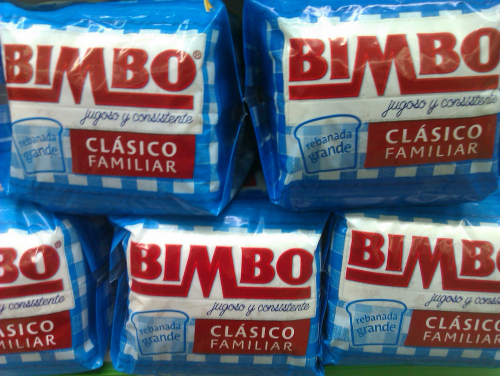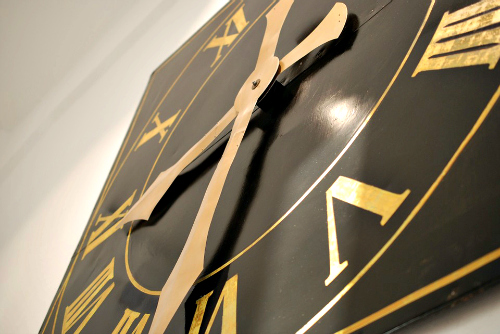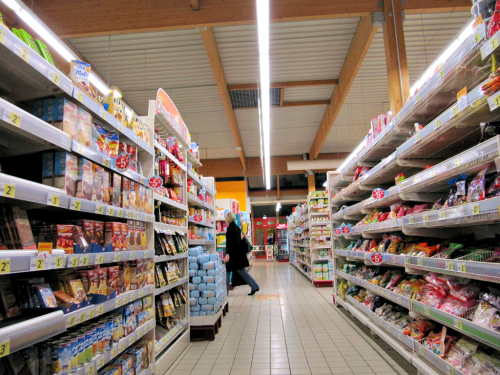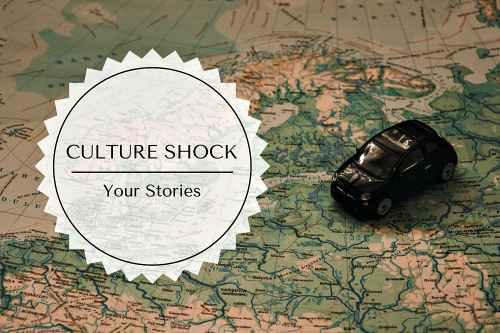We often write about culture shock at Expat Focus. We discuss the jarring moment when we land in a new country and are jolted into the realisation that we are a long way from home.
The language is different, the temperature is all wrong, our senses are overloaded with new sounds and smells, and we have no idea what is going on around us. The locals might be willing but unable to help, or they may be frighteningly stand-offish.Either way, we find ourselves floundering and struggling to find our feet in this strange new place.
This initial shock can usually be overcome within a short space of time, tackling one strange new thing at a time until they become familiar and manageable.
But even after spending months or years in a culture, we can still find ourselves taken aback by details that just hit us from left field. Sometimes this is a curious feature of the language that means ordering innocent-sounding fruit in the market becomes an illicit transaction. It may be a cultural taboo that nobody warned us about, or it may just be unfamiliar food.
We’ve collected stories of surprises and confusion from our readers and expats around the web. Many of their stories are amusing from a distance but hold valuable lessons for those of use who may be headed their way. Enjoy learning about the misfortunes of others, and if you have any similar tales to add, please include them in the comments section below.
Chile – Who are you calling bimbo?

“The loaf of bread called ‘Bimbo’” – Emma Higgins, EF reader
This one regularly causes chuckles for visitors to South America. Bimbo is the brand name of the world’s largest bakery company, turning over USD$14 Billion a year. The company sells bread and pastries all over the Americas, but it is the English-speaking world that chortles at its unfortunate name.
Originating in British slang and travelling to various degrees across the English-speaking world, the term ‘bimbo’ is used as a derogatory term for an attractive but unintelligent female.
The word first appears in the Oxford English Dictionary in 1929, but has recently gained prime-time play thanks to Donald Trump. The Republican Presidential candidate used the term over Twitter to deride Fox News host Megyn Kelly after she moderated a televised debate.
Despite the implied sexism in the slang, it is lightly used in most of the English world, making the bread’s brand name more a cause for amusement than alarm.
Norway – Half past, or half an hour before?

“The first time my sister in law and I arranged to meet to go for a walk in the park, she said she would pick me up at ‘halv-ni’, so of course, I thought she meant half past nine or 9.30am. She rocks up at 8.30am and I say, ‘oh you’re early’… and she looked at me with bewilderment and said, ‘No, I’m on time’… Well that’s a lesson I’ll never forget!” – Lisa Margaret, EF reader
This tale makes perfect sense when you start thinking like a Finn, or a German, or many other European residents. In the English-speaking world we refer to the time 6:30 as ‘half past six”. However, it is also possible to describe this time as “half an hour to seven” in some countries.
So when Lisa’s sister-in-law arrives at her house at 8.30am, she’s counting down to 9am, whilst Lisa is assuming they are meeting at 9.30am.
Finland – Supermarket stocks

“There is very little you can’t buy in a well-stocked Finnish supermarket. Bread, milk, rifles, fishing nets, bullets, porn magazines, sex toys. Wait, back up there a minute. Sex toys? Because I have long gotten over the shock of rifles, bullets and porn mags being readily available. Why would you buy a sex toy from a supermarket?” – Heather, blogger, Note From Lapland
American supermarkets are often accused of being oversized and overstocked, but Heather’s anecdote suggests that Finnish stores are the true ‘one-stop-shops’ for everything the expat shopper could ever need.
South Africa – Robots

“I was puzzled to be told to turn left at the “robots”, I was expecting a Dalek to appear. We call them traffic lights in England.” – Soph Nesbitt, EF Reader
The rainbow nation is great at adopting, borrowing and repurposing words from English, Afrikaans, Khoi San, Zulu, Portuguese and all the other multitudinous languages spoken in the country. This patois chatter of slang and loan words makes for a rich mix of confusion.
For no clear reason traffic lights are ‘robots’, you best friend is a ‘bra’ and a BMW saloon is a ‘G-string’. It’s probably best not to research too much in to the history of these phrases, rather just to try and get a grip on what they mean and work out when it’s acceptable to use the slang you do understand.
Germany – Cheese shock

“My parents immigrated from Korea to Germany during the early 70s, they met in Germany. During the first year my mom was too afraid to eat anything of that “weird” German food, she depended on rice she bought through friends and the veggies she was able to identify.
In the end she got fed up and decided to visit a supermarket. While browsing the lanes she noticed a horrible smell wavering around. She first thought that somebody had puked but couldn’t see any evidence for that. In the end she ran away because the smell was too unbearable. And that was how she got introduced to cheese.” – Schliti on Reddit
Familiar food is one of the first things we miss when moving abroad, and the new stuff can be the most difficult thing to adapt to. For many expats sampling new cuisine is the fun part, for others the prospect of trying something new is a terrifying concept.
Schliti’s mother put in a lot of effort to avoid trying German food, which meant when she stumbled across it, the shock was intense. If new food is not your ideal dish, try small servings to conquer your fears before tackling larger platters.
Poland – Weigh your own produce

“Not knowing that I have to weigh and label my produce at the supermarket, and not understanding why the cashiers wouldn’t let me buy it.” – Emily Pietila Miller, EF Reader
Shopping varies wildly around the world. Some countries will queue patiently just to see what is available, whilst other boisterously haggle in a competitive scrum for the best serving of groceries.
Even supermarkets have different rules: some offer full service to customers whilst others expect you to gather, price up, label and pack the goods before handing over cash.
Some may even require payment for certain products as you go. A loaf of bread from the bakery may need to be paid for before you move on to the cheese counter.
A trip to the supermarket may be a carefully nuanced affair, so it might be best to ask a local friend or neighbour to guide you round on your first visit.
Scotland – Smoking slang

“I’m from Denmark and the first time I was visiting my sister in Glasgow after she moved there, a dude came up to me and asked for a fag, I was a bit confused until I figured out he wanted a cigarette.” – Rottenblade on Reddit
The British love their slang. Why call something by its name when it can be given a seemingly unrelated but commonly used nickname? How many visitors have been confused by a ‘tenner’ being worth ‘ten quid’ or the insatiable appetite for a ‘cuppa’ rather than a sip of tea?
Rottenblade could be forgiven for thinking the friendly Glaswegian was being unpleasant, using a word that is a homophobic slur in the rest of the world. In the UK, ‘fag’ is simply a slang word for cigarette.
Jordan – Smoker chic

“Bling hubbly bubbly. For the “Diva” smoker!” – Lori Ramey Maslami, EF reader
Smoking is a serious business in much of the Middle East. The old and the young in equal measure will come together to chat and chew on the mouthpieces of bubbling water pipes.
The Hookah pipe has a history that dates back to the Mughal emperors of India, but this method of smoking quickly became popular across Persia. The introduction of tobacco to the area via European traders only increased the popularity of the activity.
Now cafes and street corners across the Middle East are wreathed in thick clouds of flavoured smoke. Hookah smoking was once a preserve of the wealthy, and the pipes would be ornately decorated and adorned with gems.
As Lori’s picture shows, much of this tradition is still alive and thriving in Jordan. Intricate silverwork, hand-blown glass and woven fabrics all contribute to making this humble pipe an item of status and importance.
USA – Trick or Treat

“When I was in high school, a student in my class told us the story of his family’s first night in America. They were from China, and moved into a house on October 31st, more commonly known as Halloween. They had never heard of this American holiday.
The entire evening there were people dressed up in crazy costumes coming to their door and ringing the doorbell, and the family had no idea why. He said they spent much of the night huddled together under a table with all the lights off in the house, completely terrified.” – Hobofats on Reddit
Holidays and festivals are probably the biggest cause for confusion amongst travellers. In Valencia, Spain, devout Catholics celebrate Easter by dressing in floor length robes and pointed hats with veils that cover the face. To many audiences this innocent costume summons unpleasant images of racist organisation and violence.
Luckily for Hobofats’ friend the traditions of Halloween are largely playful and harmless, but to a newly arrived Chinese family ‘trick or treat’ may be rather intimidating. The prospect of demons and evil spirits can be very real for superstitious families, for whom the spiritual world is very much alive.
Belgium –Lost in translation

“I love all the broken English that you can find on various items around Belgium. Some of them, like this canvas, are quite pretty. I’ve started collecting things which my Wallon guests don’t look twice at but my English students or Anglophone guests can’t help but stare at in horrified wonder.” – Misty Rae Bourlart, EF reader
There are blogs on the Internet entirely devoted to poor translations being proudly sported on t-shirts and trinkets. These are all the more amusing when splashed across obviously counterfeit goods.
Misty clearly finds the poor translation amusing enough to give it pride of place in her home.
USA – An easy mistake

“You know that thing you use to rub out pencil? That’s a “rubber” in the UK. Apparently it means something else in The States.” – Jenwrr on Reddit
To Brits a ‘rubber’ is an eraser, to North Americans, it is a condom. Don’t confuse stationery and contraceptives.
Did you have any amusing cultural confusion moments when you moved abroad? Share yours in the comments!
Article by Andy Scofield, Expat Focus International Features Writer

